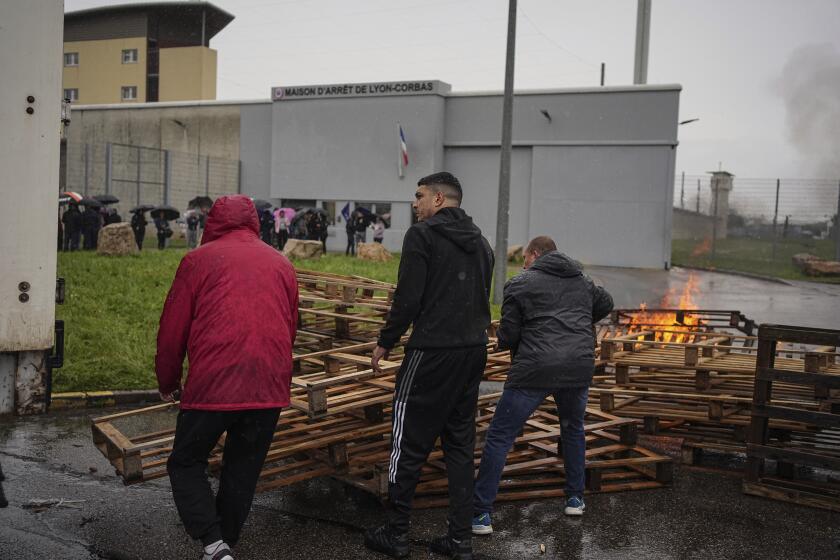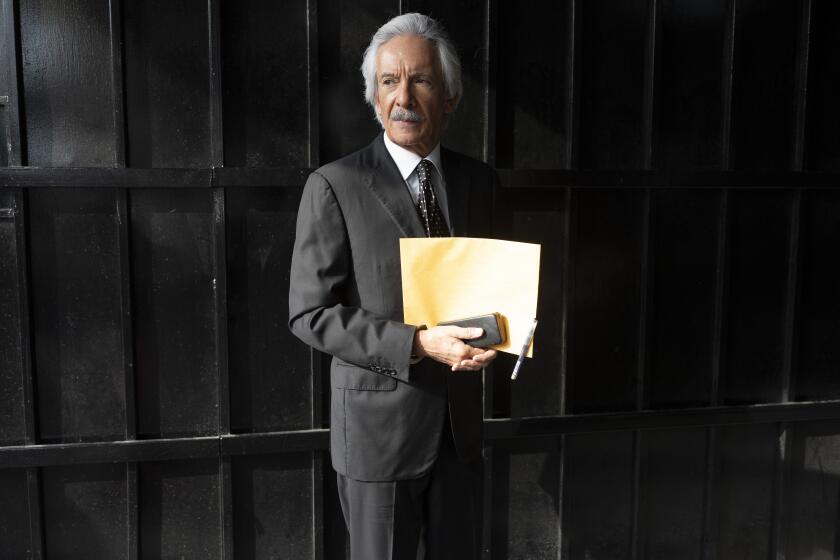Severe Storm Drenches Chicago
A severe thunderstorm brought relief from three days of oppressive heat Thursday but also left Chicago-area commuters stranded, basements flooded, planes grounded and thousands without power.
“I was up to my knees in sewage,” said attorney Nigel Telman. “Water I can understand, but I shouldn’t have to deal with raw sewage in my basement.”
Heat across the nation’s midsection had claimed at least eight lives since Monday, including professional football player Korey Stringer, who died Wednesday.
A torrential downpour began sweeping through the Chicago area about 7:30 a.m., snarling traffic. Delays of up to three hours were reported at both of Chicago’s major airports Thursday afternoon, said Monique Bond, spokeswoman for the city’s Department of Aviation.
The heavy rain, wind and lightning knocked out electricity to 56,000 Commonwealth Edison customers in the morning, but power was restored to all but 4,200 by Thursday night, Commonwealth Edison spokeswoman Tabrina Davis said.
Two hospitals on the city’s North Side were forced to operate with backup generators because of problems with soggy underground equipment.
ComEd also was asked to shut off power to some buildings so water could be pumped out of flooded basements, she said.
A lightning strike caused a fire in the main transformer at a nuclear plant in Cordova, 137 miles west of Chicago. Power lines were disabled and the Unit 2 reactor shut down automatically, Exelon Nuclear spokesman Craig Nesbit said. The fire was quickly extinguished.
Power generation was not expected to be affected; the Unit 1 reactor was operating normally, Nesbit said. Exelon is the parent company of ComEd.
Flooding and a power outage also led to the shutdown of Northwestern University’s main campus in Evanston, a Chicago suburb. “We got hit pretty hard this morning with water in 20 to 30 buildings, some flooded and some with backed-up sewage,” university spokesman Alan Cubbage said.
Motorists were stranded in their cars after attempting to drive through flooded underpasses. Others got around the high water by driving over sidewalks.
Drenched commuters crowded downtown stores in search of dry clothing. Train stations were packed with people who refused to venture into the rain.
Not even an oversized umbrella could help commuter Tom Edwards, who was soaked before he reached his train stop. “I had to turn around and go back home and change.”
By noon, the storm was over, said Amy Seeley, a weather service meteorologist. By then, parts of the city had been swamped by as much as 4 1/2 inches of rain.
More to Read
Start your day right
Sign up for Essential California for news, features and recommendations from the L.A. Times and beyond in your inbox six days a week.
You may occasionally receive promotional content from the Los Angeles Times.






